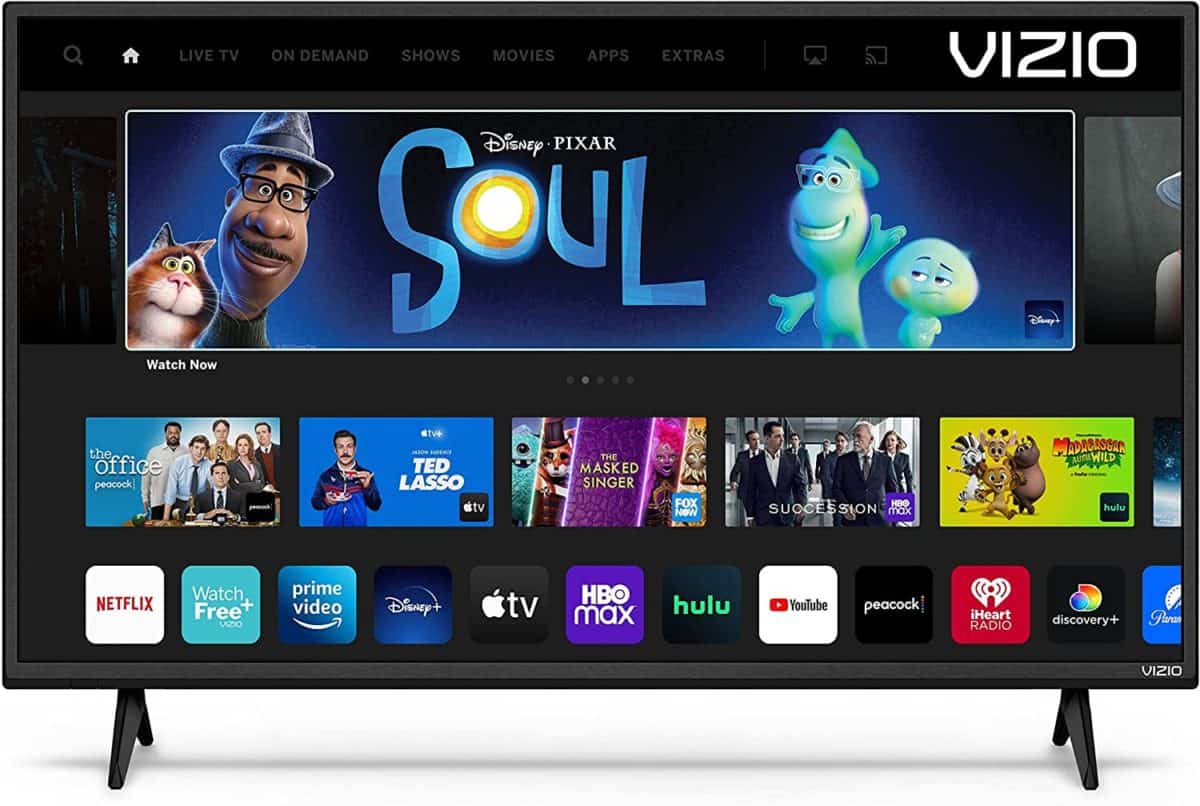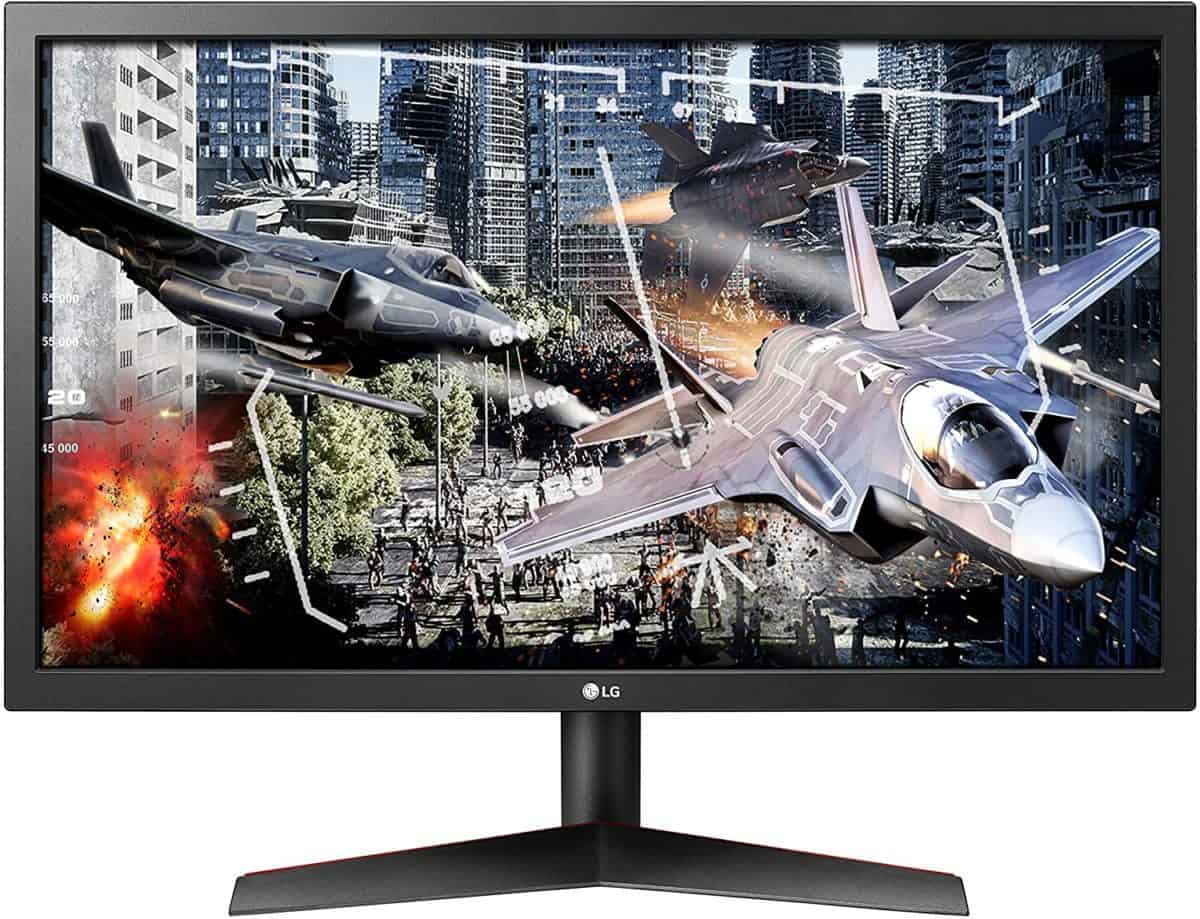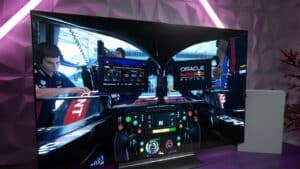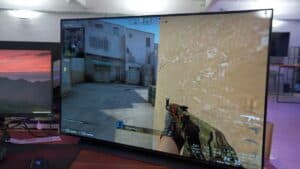Monitor vs TV power comparison
Which uses more power, a TV or a monitor?
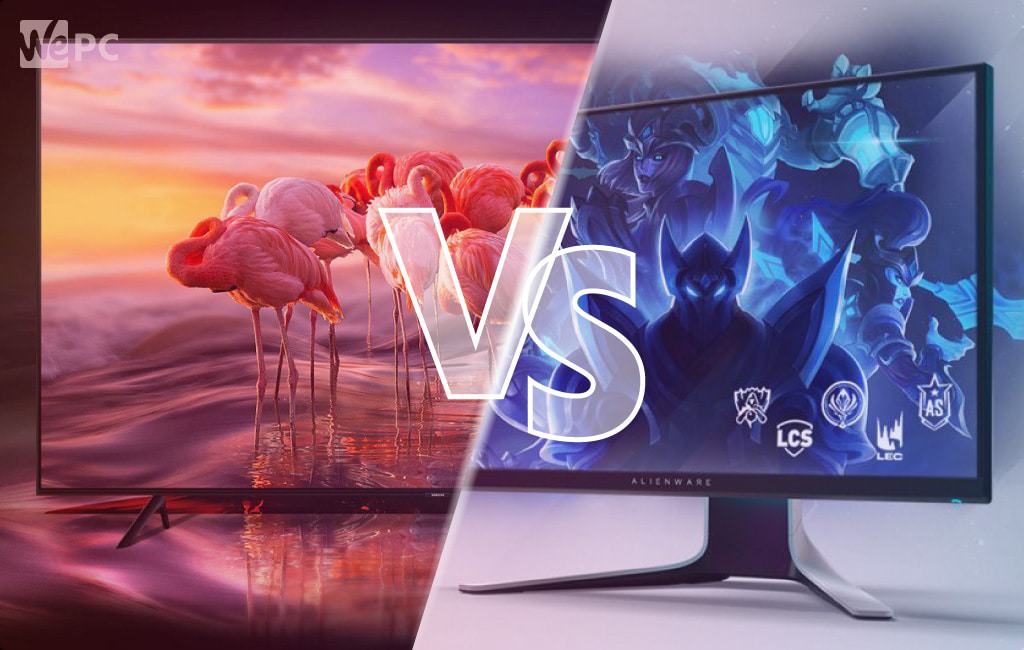
WePC is reader-supported. When you buy through links on our site, we may earn an affiliate commission. Prices subject to change. Learn more
Both monitors and TVs mostly use LED technology, which is known for being relatively energy efficient, especially the OLED and QLED variants. However, there are some differences in how the two devices use the power that can affect how much energy they consume.
Monitor vs TV – which should you buy?
One major difference between monitors and TVs is screen size. TVs are much larger than monitors, which means they need more power to illuminate the larger screen. Consequently, TVs consume more power than monitors. However, the difference in power consumption between a monitor and a TV varies heavily depending on the size of the screen and the specific model.
Onto the second factor. Monitors are typically designed with a higher refresh rate than TVs and display images more quickly and smoothly. Due to this, a monitor might be consuming more power than TVs, especially when the monitor is running at a high refresh rate. And also, a TV consumes power alone, whereas a monitor requires an entire PC to operate, with a GPU, CPU, and other hardware skyrocketing the total power consumption.
Another factor that adds to the power consumption is the backlight. Monitors use a backlight to illuminate the screen, while TVs use a different technology called an edge-lit LED. The edge-lit LED technology is more energy efficient, but it’s still not nearly enough of a distinction to considerably shift the balance.
Monitor vs TV – last word
In general, it is important to look at the specs and compare the power consumption of the specific monitor or TV you are interested in. Additionally, it’s worth considering the energy efficiency rating of the device. TVs and monitors have an energy efficiency rating that gives you an idea of how much energy the device will consume. Look for devices with an Energy Star rating, as these devices have been certified as energy-efficient by the Environmental Protection Agency.

